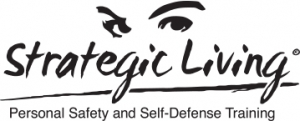Whether or not you use Facebook, you’ve likely heard of the recent ferment over their privacy policy. One source of confusion is their “policy” shifts more often than a BP executive’s assessment of the Gulf oil spill damage; another is finding all those little control panels that govern who gets to see all those disparate bits of your information.
ReclaimPrivacy.org has developed a tool that scans your Facebook profile and brings up a clickable list of what you can change to increase privacy. Now that doesn’t mean you HAVE to change those settings — you may want to be found by friends of friends, or everyone, or your city’s network (or not, the choice is yours). You may want to be tagged in any and all photos (or not). This tool makes choosing your Facebook’s settings a lot easier.
Then there’s the other option. Do not include information you do not want public. When Facebook asked for my date of birth, I put in an “alternative” date which of course is not made visible to anyone, even “friends” (I feel that my birthday is between me, my real-life family and friends, and the IRS). This is important because even if you elect to keep certain info private, there are Facebook applications that perhaps your friends use that may “leak” some of your info.
[And of course the third option. Maybe Facebook isn’t your cup of tea. Some of my (real-life) friends have chosen to not join Facebook because of the nature of their work, or because they’ve decided it is a substantial oversharing of information.]
The internet is not a private space, regardless of “privacy” policies. Facebook is a free service because of the marketing potential and advertising revenue. Bits of your data will be merged with data from millions of other users to target marketing. “Opt out” rather than “opt in” policies will be a tug-of-war for a while. Before signing up for any social networking site, spend some time contemplating what “privacy” means to you and on a social-commercial site such as Facebook.
A key tenet of self-defense is that YOU choose what information to share with whom. Nobody will simply hand you that right on the internet. You will increasingly need to take charge of what you provide to others, you will need to define and assert your own boundaries, and to be effective you need to understand today’s ever-changing webscape.
